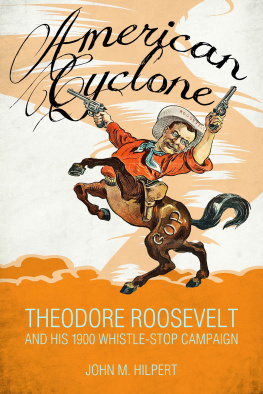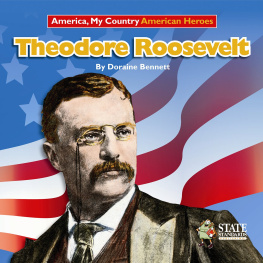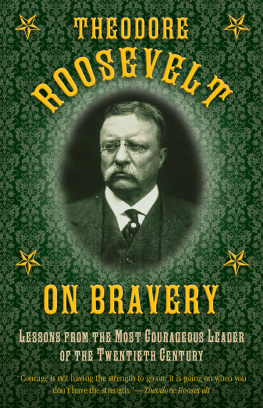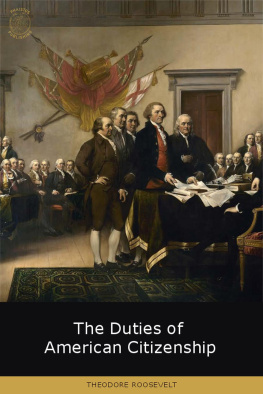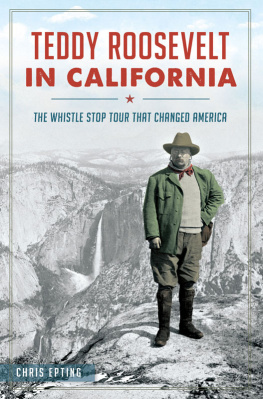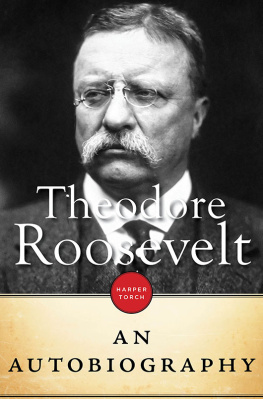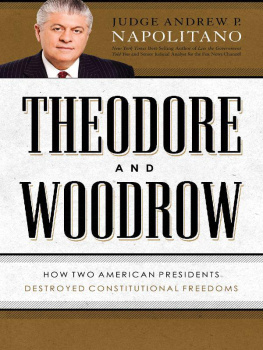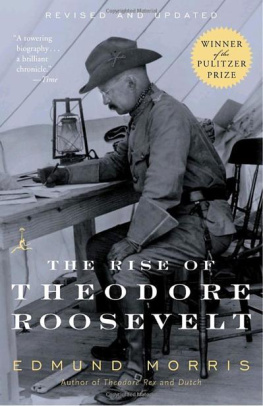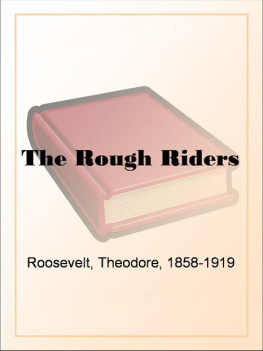John M. Hilpert - American Cyclone: Theodore Roosevelt and His 1900 Whistle-Stop Campaign
Here you can read online John M. Hilpert - American Cyclone: Theodore Roosevelt and His 1900 Whistle-Stop Campaign full text of the book (entire story) in english for free. Download pdf and epub, get meaning, cover and reviews about this ebook. year: 2015, publisher: Univ. Press of Mississippi, genre: Politics. Description of the work, (preface) as well as reviews are available. Best literature library LitArk.com created for fans of good reading and offers a wide selection of genres:
Romance novel
Science fiction
Adventure
Detective
Science
History
Home and family
Prose
Art
Politics
Computer
Non-fiction
Religion
Business
Children
Humor
Choose a favorite category and find really read worthwhile books. Enjoy immersion in the world of imagination, feel the emotions of the characters or learn something new for yourself, make an fascinating discovery.
- Book:American Cyclone: Theodore Roosevelt and His 1900 Whistle-Stop Campaign
- Author:
- Publisher:Univ. Press of Mississippi
- Genre:
- Year:2015
- Rating:4 / 5
- Favourites:Add to favourites
- Your mark:
- 80
- 1
- 2
- 3
- 4
- 5
American Cyclone: Theodore Roosevelt and His 1900 Whistle-Stop Campaign: summary, description and annotation
We offer to read an annotation, description, summary or preface (depends on what the author of the book "American Cyclone: Theodore Roosevelt and His 1900 Whistle-Stop Campaign" wrote himself). If you haven't found the necessary information about the book — write in the comments, we will try to find it.
John M. Hilpert: author's other books
Who wrote American Cyclone: Theodore Roosevelt and His 1900 Whistle-Stop Campaign? Find out the surname, the name of the author of the book and a list of all author's works by series.
American Cyclone: Theodore Roosevelt and His 1900 Whistle-Stop Campaign — read online for free the complete book (whole text) full work
Below is the text of the book, divided by pages. System saving the place of the last page read, allows you to conveniently read the book "American Cyclone: Theodore Roosevelt and His 1900 Whistle-Stop Campaign" online for free, without having to search again every time where you left off. Put a bookmark, and you can go to the page where you finished reading at any time.
Font size:
Interval:
Bookmark:

AND HIS 1900 WHISTLE-STOP CAMPAIGN

Association of American University Presses.
All rights reserved
Manufactured in the United States of America
Library of Congress Cataloging-in-Publication Data
American cyclone : Theodore Roosevelt and his 1900
whistle-stop campaign / John M. Hilpert.
pages cm
Includes bibliographical references and index.
ISBN 978-1-4968-0339-9 (cloth : alk. paper) ISBN 978-1-4968-0340-5 (ebook) 1. PresidentsUnited States Election1900. 2. Roosevelt, Theodore, 18581919. 3. PresidentsUnited StatesBiography. 4. United StatesPolitics and government18971901. I. Title.
E738.H55 2015
324.9730911dc 2015009821
who has made all of lifes whistle stops with me
Font size:
Interval:
Bookmark:
Similar books «American Cyclone: Theodore Roosevelt and His 1900 Whistle-Stop Campaign»
Look at similar books to American Cyclone: Theodore Roosevelt and His 1900 Whistle-Stop Campaign. We have selected literature similar in name and meaning in the hope of providing readers with more options to find new, interesting, not yet read works.
Discussion, reviews of the book American Cyclone: Theodore Roosevelt and His 1900 Whistle-Stop Campaign and just readers' own opinions. Leave your comments, write what you think about the work, its meaning or the main characters. Specify what exactly you liked and what you didn't like, and why you think so.

